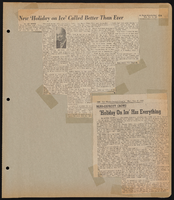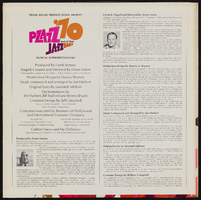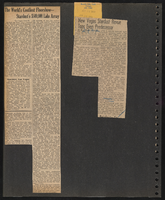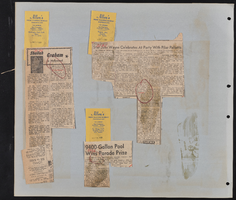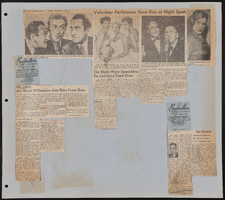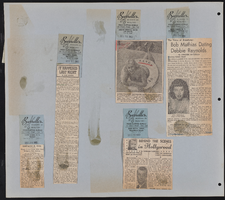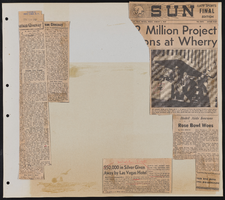Search the Special Collections and Archives Portal
Search Results
UNLV Libraries Collection of Grand Casinos, Inc. Promotional Materials and Reports
Identifier
Abstract
The UNLV Libraries Collection of Grand Casinos, Inc. Promotional Materials and Reports includes annual reports, financial reports, newspaper and magazine clippings, press kits, press releases, and promotional materials for Grand Casinos, Inc. properties in Mississippi, Louisiana, Minnesota, and Nevada, dating from 1992-2002.
Archival Collection
Daly v. Daly Collection
Identifier
Abstract
The Daly v Daly Collection documents materials produced for and as a result of the lawsuits between Suzanne Daly (formerly Tim Daly), a male-to-female transgender woman, and Nancy Toews Daly from 1980 to 2003. The collection primarily focuses on the motions filed with the Nevada District Courts and Nevada Supreme Court and transcripts of the divorce, the battle for parental rights, and an allegation of civil rights violations.
Archival Collection
Paul Sarno oral history interview
Identifier
Abstract
Oral history interview with Paul Sarno conducted by David G. Schwartz on July 13, 2007 for the Remembering Jay Sarno Oral History Project. Sarno begins by discussing the Sarno family, his grandparents, their Jewish heritage, and the early life of his uncle, Jay Sarno, and his father. Sarno then describes how his uncle married a lot later than his older siblings and he was the only one who had personal hobbies such as golf. Sarno then chronicles his uncle’s role as a businessman in Las Vegas, Nevada and how he only visited Las Vegas once because his father was a gambling addict. Lastly, Sarno discusses everything he knew about his uncle’s relationship with Allen Dorfman, the Teamster’s Union, and his legal troubles with the Internal Revenue Service.
Archival Collection

